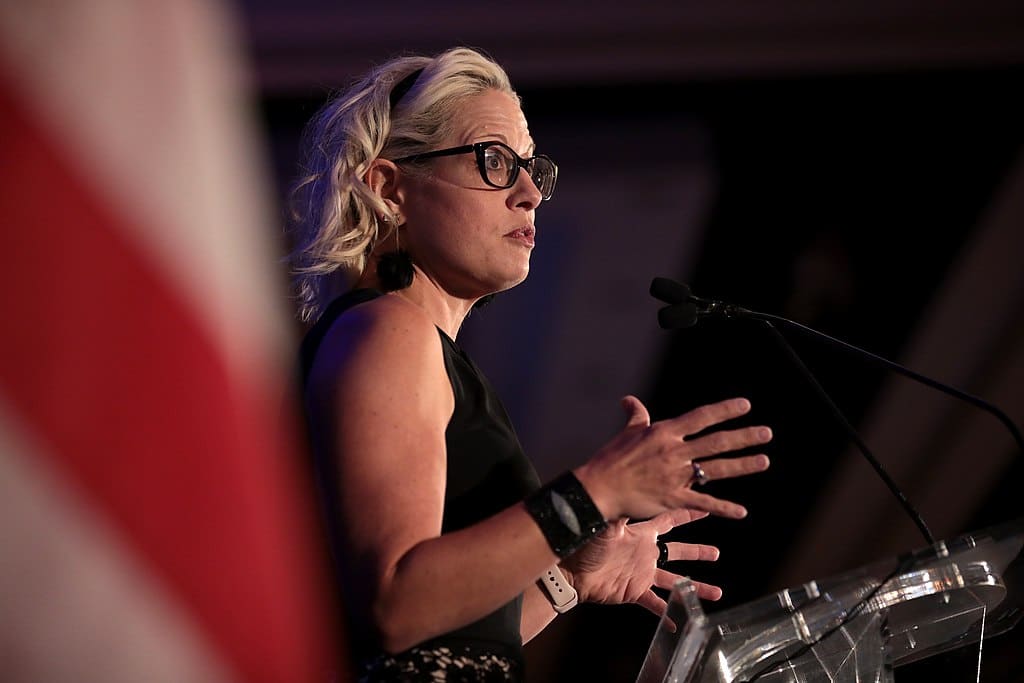Home » Hot off the Press » Confounding Kyrsten: Sinema’s Style and Substance

During a week when the New York Times op-ed page asked “Is It Time for Kyrsten Sinema to Leave the Democratic Party?,” the Arizona senator left the country instead.
Sinema traveled to London and Pa...
No hoodwinking or hornswoggling here.
Support independent journalism and get unlimited access to quality commentary.
Already a subscriber? Login here

Those who wax poetic about American greatness often make reference...Read More
The Bureau of Labor Statistics (BLS) recently reported that the...Read More
It wasn’t about Israel. It was Nov. 28, 1941. Israel,...Read More
Zakiya Carr Johnson hates the American system. She hates American...Read More
